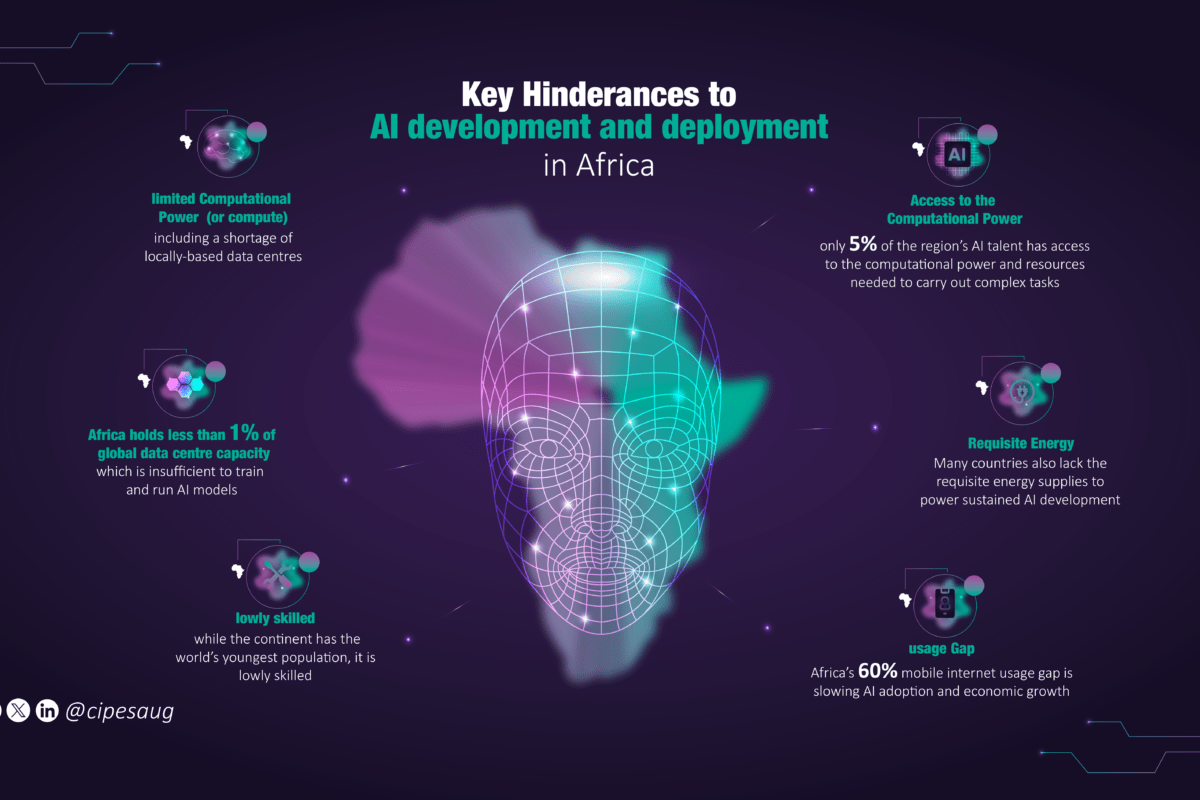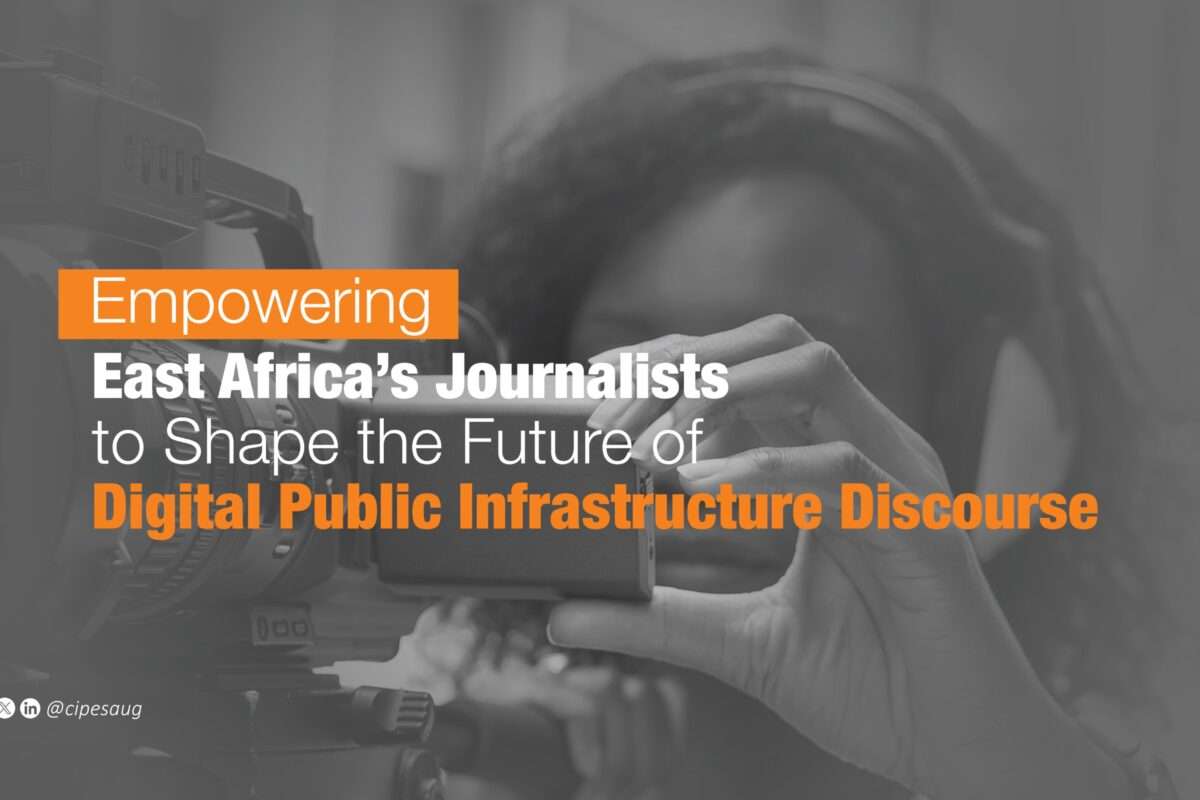By CIPESA Writer |
From April 29 to May 1, 2025, Paradigm Initiative will host the Digital Rights and Inclusion Forum (DRIF25) in Lusaka, Zambia, where it will bring together a diverse community to explore key questions around access, power, and participation in the digital age. As a regular contributor and participant of DRIF, this year, the Collaboration on International ICT Policy for East and Southern Africa (CIPESA) looks forward to participating in multiple workshops and sessions across the three-day event, engaging on themes that reflect our continued commitment to promoting inclusive and effective use of ICT in Africa for improved governance and livelihoods.
We look forward to hosting a session on tech accountability while also joining sessions hosted by various partners including the Office of the United Nations High Commissioner for Human Rights (UN OHCHR), Atlantic Council, Meta, African Digital Rights Network (ADRN), Fundación Karisma, SocialTIC, TEDIC, Tech & Media Convergency (TMC) and Rudi International.
Additionally, CIPESA will manage a digital resilience walk-in clinic/helpdesk where participants can get their digital devices assessed. Alongside CIPESA will be Digital Defenders Partnership, Digital Society of Africa, Defenders Protection Initiative, Derechos Digitales and Thraets. This compliments CIPESA digital resilience efforts including through a continuous needs assessment running for organisations across Africa.
To Moderate or Not to Moderate: Enhancing Tech-Accountability on the Internet
Room 6 | April 30 | 10:20 AM – 11:20 AM
Host: CIPESA
This session will delve into the urgent need for effective online content moderation to ensure a healthy, safe, and inclusive digital arena. Discussions will explore the growing calls for greater tech accountability, particularly in addressing the harms caused by misinformation and disinformation increasingly amplified by Artificial Intelligence (AI). Panelists will examine the balance between protecting users from harmful content and upholding community standards, enhancing user experience, safeguarding brand reputation, and ensuring compliance with national and international legal frameworks.
Strengthening Rights-Respecting Content Governance through South-South Collaboration: Trends and Opportunities in Africa and Latin America
Room 1 | April 29 | 12:10 PM – 1:10 PM
Host: UN OHCHR
This session will explore the potential for shared strategies and cooperation between Africa and Latin America in shaping content governance frameworks that respect rights and reflect regional realities. The session will examine opportunities for a South-South cooperation on rights-respecting content governance with focus on Africa and Latin America (LATAM). It will explore key trends, lessons, and tactics on rights-respecting content governance in both regions, collaboration and resource disparities in content governance between Global North and South-South systems.
Tech, Power, and Governance: The Policy Landscape in South Africa, Kenya, Nigeria, Ghana, and Zambia
Room 5 | April 30 | 11:30 AM – 12:30 PM
Host: Atlantic Council
This panel takes a closer look at the fast-changing AI and digital policy environments in leading African countries, unpacking governance models, legislative shifts, and national strategies shaping the continent’s tech future. The session is based upon a report by the Digital Forensic Research (DFR) Lab, which explores how five African countries—South Africa, Kenya, Nigeria, Ghana, and Zambia—are strategically navigating the governance of new technologies to enrich their citizens’ lives while mitigating potential risks. It focuses on three key technology domains, namely: connectivity, digital public infrastructure, and artificial intelligence (AI). The session aims to help identify advocacy opportunities that unite activists and experts from different countries across the African continent.
Open or Closed? Exploring the Implications of Open Source vs. Proprietary AI Systems in Africa
Room 1 | April 30 | 4:10 PM – 5:10 PM
Host: Meta
The use of AI technology is increasingly prevalent in Africa, with both open-source and proprietary systems being employed to address various social, economic, and environmental challenges. However, the choice between these two approaches has significant implications for human rights and ethics, particularly in the context of data ownership, surveillance, and digital divide. The aim of this panel is to facilitate a discussion on the human rights and ethical implications of open source and proprietary systems in Africa, with a focus on exploring the benefits and challenges of each approach.
Defining and Theorising Digital Rights: As Entitlements, as a Framework, and as a Movement
Room 4 | May 1, | 9:50 AM – 10:50 AM
Host: African Digital Rights Network (ADRN)
A deep dive into what “digital rights” means across different contexts, this session aims to develop a shared language and theoretical grounding to strengthen advocacy across the continent. This is important as the term is used to mean a range of different things by different people. Digital rights can be understood as a set of legal entitlements but also as a framework for evaluating technologies, projects and policies or as a form of collective action to address technology-related injustices. This sessions asks what different meanings of digital rights exist, whether it matters, and whether digital rights should be an end in themselves or a means to an end.
Leveraging Civil Society’s Capacities in Adopting Open-Source Monitoring Technologies for Early Digital Threat Detection
Room 4 | May 1, | 2:00 – 3:00 PM
Host: Fundación Karisma, SocialTIC, TEDIC, and CIPESA
In this session, the Blue Team tools project will be presented. It is an initiative aimed at leveraging civil societies’ capacities in adopting open-source monitoring technologies for early digital threat detections, such as equipment surveillance and network monitoring, among others. By presenting the implementation case studies in Latin America, the session will shed light on the difficulties of adopting surveillance monitoring technologies by already under-resourced grass-root organisations and draw parallels between the opportunities and challenges of both Latin American and African organisations in adopting said technologies.
Digital Ubuntu: Empowering African CSOs with Practical and Inclusive Skills to Build Strong Digital Rights Organisations
Room 3 | May 1, | 8:40 – 9:40 AM
Host: Tech & Media Convergency (TMC) & Rudi International
The workshop aims to support emerging civil society organisations with practical skills in order to help them build strong institutions as they work to build sustainable and inclusive digital rights advocacy in the Global South. This full-day workshop will bring together both seasoned and emerging digital rights advocates to explore solutions for promoting digital justice.
Central to the workshop is Digital Ubuntu, a philosophy rooted in interconnectedness, shared responsibility, and community-oriented solutions, fostering collective responsibility among governmental, non-governmental, and civil society actors.
All sessions will take place at the Mulungushi International Conference Centre.





